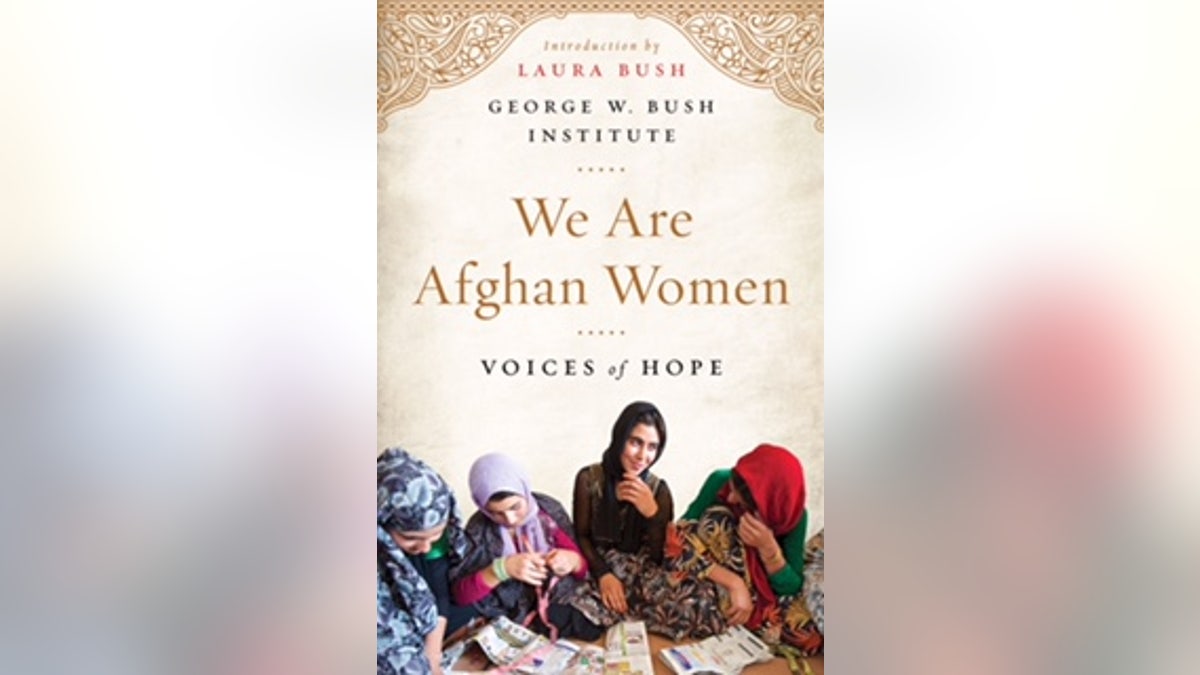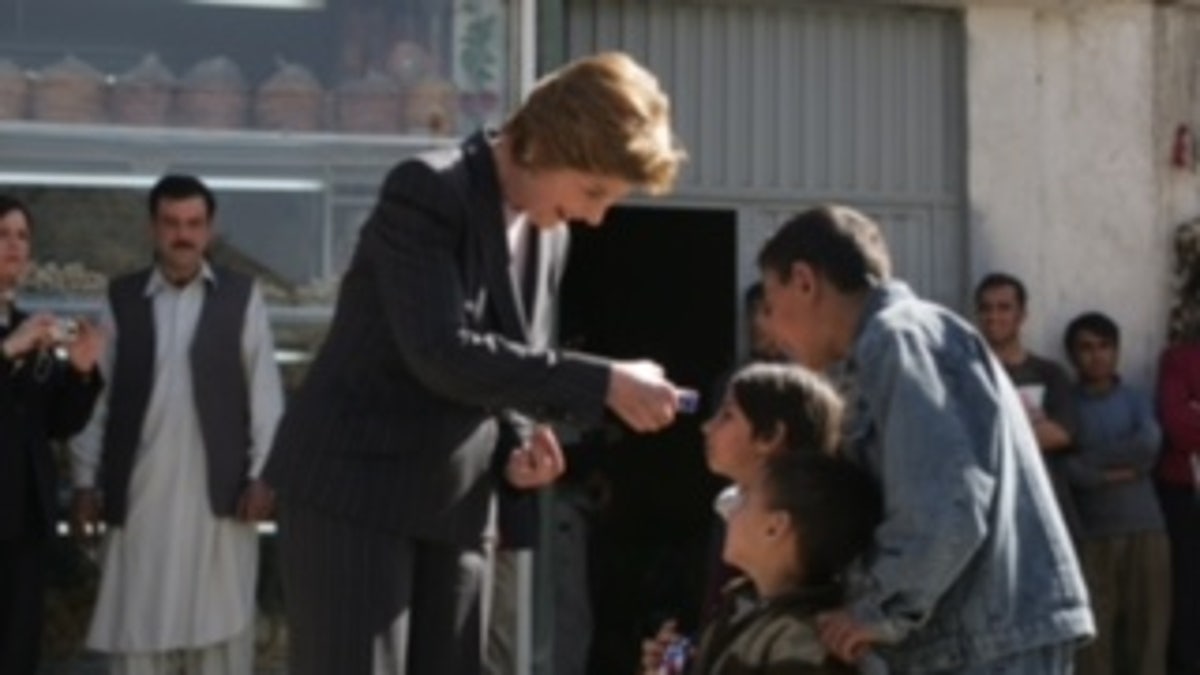
Editor’s note: Dana Perino, co-host of “The Five” and former White House Press Secretary recently talked with former First Lady Laura Bush about the new book “We Are Afghan Women.”
DANA PERINO: Mrs. Bush, the new book from the Bush Institute, “We Are Afghan Women,” has the subtitle "Voices of Hope." In reading through the stories of the women, it is remarkable how much hope they seem to have in the face of so many challenges. In your many interactions with Afghanis, do you find that hope triumphs over their experience, and why so?
FORMER FIRST LADY LAURA BUSH: Every time I have spoken with Afghan women, from the late fall of 2001, through my visits to Afghanistan, and up through today, I have been impressed by their resilience, their bravery, their ability to solve problems, and their desire to build a better country. And for many years, these women were silenced.
When I met with the new First Lady of Afghanistan Mrs. Rula Ghani last year at the Bush Center, she told me her goal: to dare the world to view Afghanistan in a different light. She said the Afghan people, particularly the women, don’t want our pity; instead, they want our respect as business owners, doctors, parliamentarians, teachers, and writers. They want the world to recognize their successes and their desire to create lasting, “positive change.”

Laura Bush in Afghanistan (From "We Are Afghan Women"/George W. Bush Institute)
As one young Afghan woman says, “I have the option to be optimistic or pessimistic and my choice is to be optimistic.”
DP: You write in the introduction that 60 percent of the population in Afghanistan is under the age of 25 and they've never known peace. I would imagine that means that they are hungry to learn and need a safe and healthy environment in which to do so. When it comes to effective foreign aid, in Afghanistan and elsewhere, should there be a particular focus on women and children first?
MRS. BUSH: We know from research that when mothers are educated, their children are more likely to be educated and healthy. Education helps freedom thrive. It’s very important that we help ensure Afghanistan’s young democracy advocates are prepared to be tomorrow’s political and civil society leaders. When you give children books and an education, you give them the ability to imagine a future of opportunity, equality, and justice.
DP: I was touched by many of the anecdotes in the book and have thought of Nasima Rahmani who writes about how important Voice of America was to her when she was able to listen to it. How important is it that the West continue to try to be a part of the daily lives of people around the world, especially where access to a free media may be limited?
MRS. BUSH: I’ve heard stories from people in Central Europe and the Soviet bloc, who told me how important Voice of America was during the Cold War. I am grateful that VOA continues to broadcast news all over the world.
When it comes to the women in this book, the opportunity for free expression is the best support we can give to them. They are courageous enough to speak their minds, and by listening, we also have a chance to learn.
And that is why the Bush Institute published “We Are Afghan Women.” We wanted to shine a spotlight on the successes of Afghan women, and encourage sustained commitment to Afghan women and Afghanistan. We want Afghan women to know that George and I stand with them.
DP: As a former librarian and teacher, your love for books is well known, however, I'm not sure people appreciate how much you understand how stories can help influence thinking and advance an agenda. The stories in the book are beyond compelling -- was that part of your thinking when you embraced the project on behalf of the George W. Bush Institute, to make the problem more tangible through their own voices?
MRS. BUSH: Absolutely. They are Afghan stories, but they are also universal stories. Many women will recognize their own struggles against discrimination in education or in the workplace. We see women who confront domestic abuse and violence, serious and devastating problems not only in Afghanistan but here at home in the United States. We find inspiration in the stories of women who stood up to the naysayers who told them their business ideas would fail, and the women who would not accept problems but solved them. We share in the desire that Afghan mothers and fathers have for their own children to lead better lives.
DP: “We Are Afghan Women” comes at an important time as America makes decisions on how long we should keep troops in the country and how much support we should provide. Resources are scarce, but in your experience, have you seen that investing in women in a country like Afghanistan can have immediate and larger pay-off?
MRS. BUSH: Yes, of course. George and I believe that women are the catalysts of change. I launched the American University of Afghanistan on my trip to Afghanistan in 2005. When the doors opened in 2006, there were 52 men and one woman enrolled. Last year, I was presented with an honorary degree by the 2014 valedictorian of AUAF, a woman from Kabul named Onaba Payab. Onaba now works to promote education and economic rights for all Afghan women and is pursuing a master’s degree in public health. Her story proves that investments in the success of women are investments that pay off. And we know the inclusion of women in all aspects of society strengthens and improves the stability of their countries.
We all can promote a better future for Afghanistan. We need to ensure that Afghanistan does not become a terrorist haven or fall to the Taliban or ISIS. To do that, we need to continue to assist Afghan security forces, and I welcome President Obama’s decision to maintain a US military presence through 2016 and beyond.
We must never forget that what happens in Afghanistan — and elsewhere in the world — matters to us here at home.
